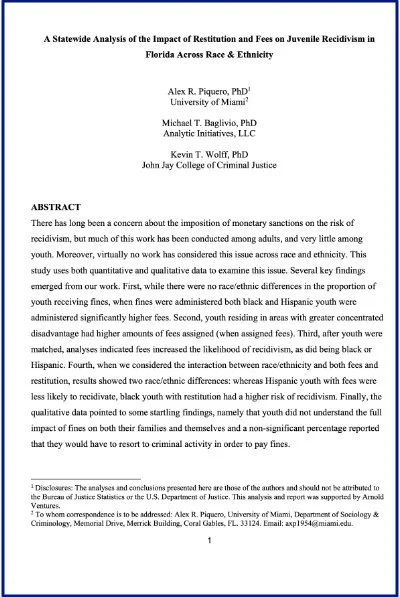By Stephanie Campos-Buist and Jeffrey Selbin
In 2017, Governor Jerry Brown signed landmark bipartisan legislation making California the first state to abolish entire categories of monetary sanctions. Starting January 1, 2018, Senate Bill 190 prohibits counties from charging all administrative fees in the juvenile legal system. SB 190 also repealed county authority to charge certain fees to young people ages 18 to 21 in the criminal legal (adult) system.
Senators Holly Mitchell and Ricardo Lara authored SB 190 to “eliminate a source of financial harm to some of the state’s most vulnerable families, support the reentry of youth back into their homes and communities, and reduce the likelihood that youth will recidivate.” California became a national model when it abolished these fees, offering the promise of debt-free justice for young people and their families.
This study presents key findings about the implementation of SB 190 and the status of fee reform in California since January 1, 2018. The findings, based on extensive public records and stakeholder interviews, document how counties have gone beyond the requirements of SB 190 to relieve hundreds of thousands of families of more than $237 million in previously assessed fees, and counties have taken further steps to end harmful and racially discriminatory fee practices.
However, the study finds that not all counties are complying fully with the new law. Some counties continue to charge SB 190 prohibited fees to families through child support orders and to young adults in the criminal legal system. Some counties have also resisted calls to end all collection activity and continue to pursue more than $136 million in previously assessed fees from California families.
The study concludes by recommending concrete actions that county and state officials can take to ensure full compliance with SB 190 and to realize the full benefits of fee abolition
Berkeley, CA: University of California at Berkeley, School of Law, 2019. 34p.



